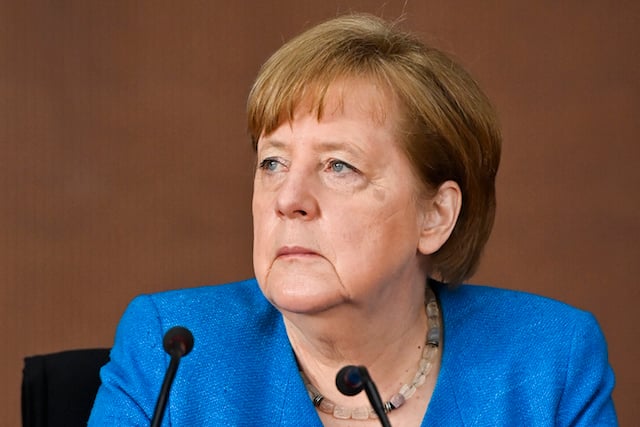The new measures include a 10pm to 5am curfew, further restrictions on socialising and the closures of non-essential shops in regions with high infection rates.
In her weekly video address to the nation, Merkel acknowledged that the new rules “are tough” but insisted they are “urgently needed” in order to slow the spread of Covid-19 the country.
The emergency brake measures come into force if the average number of reported new infections per 100,000 inhabitants over a week exceeds 100 for three days in a row.
According to the RKI dashboard, around 351 districts and cities in Germany have a seven-day incidence above 100. On Friday April 23rd, Germany recorded 27,543 cases within the last 24 hours, and 265 deaths, while the nationwide seven-day incidence increased to 164.
Referring to other countries such as Britain, Portugal and Ireland, which have recently seen a sharp drop in infection rates due to strict lockdowns, Merkel defended Germany’s new restrictions against critics who have called them excessive.
“No country that managed to break the third wave of the pandemic and then loosen restrictions again did so without tough measures such as nighttime curfews,” Merkel said.
Under the new rules, people are not allowed to leave their homes between 10pm-5am, unless it’s for an essential reason like work or a medical emergency. Walking and jogging alone outside is allowed until midnight.
No more than one household can meet and socialise, with the exception of children up to 14.
Non-essential shops can only open for customers who present a negative Covid-19 test and have booked an appointment. Classroom attendance at schools is to be stopped if the incidence rate exceeds 165 over three days
Since the start of the pandemic, Germany has recorded almost 3.3 million cases and 81,444 deaths.
READ ALSO:



 Please whitelist us to continue reading.
Please whitelist us to continue reading.
Member comments